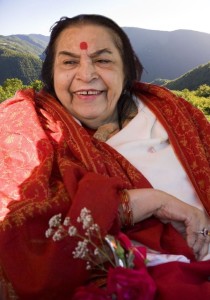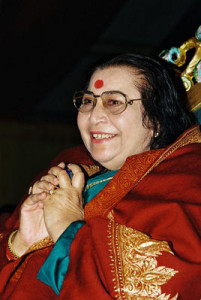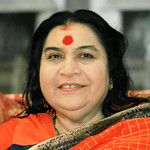enlightenment
So when you are enlightened, the conscious mind is something like a tree into which the sap is now flowing. It may be that it is just like a leaf or it may be it is like a flower, or maybe it is like a fruit. So it changes its forms once he gets realization. If a person gets realization then the conscious mind moves on, getting more and more light. Say, for example, when the electricity comes, you can see this room, you can see another’s room, you can see another room, you can go round and see and again, again you will see it all the rooms; then you become aware of all the rooms. So you are conscious of all these. But in the beginning you are just conscious of the room where you are standing, isn’t it?
So the conscious mind’s definition cannot be given after realization. A person like Me, say for example, has a conscious mind that might envelop the whole world. Or a conscious mind of a person who is realized soul who is still not anywhere, just started, then he’s only conscious as to where is right, where is left, where is this. So before the realization the conscious mind sees things around you. Out of that also there are categories. Some people see, say, for artists can see something, and a scientist can see something, another poet will see something. So it depends on the conscious mind how it is, has got the trend. But still it won’t see something that is subtle behind it, and that only is possible after you get your realization.
Shri Mataji, Sydney, Australia, 6 May 1987

Shri Mataji
What is important is that you should know reality. You should know exactly what is right and what is wrong. For that, there is this great power of Kundalini within you. She is the one. She passes through all these centres – enlightens them first of all, so your awareness gets enlightened. And when she pierces through the Sahasrara, she joins you to this All-pervading Power, which is knowledge, which is love, which is truth.
So after that, you immediately know … that what we have been thinking so far, of separating ourselves from others by thinking that they are not all right, they are wrong, they are whatever it is. This disappears. This disappears completely. And then you realise that your awareness itself is dominated by so many circumstances – for example, where you were born, what your parents taught you, what experiences you have had. And then you realise that it was all wrong because it is not reality.
Whatever feelings you have, whatever ideas you have about another person or about another nation, all of them are not correct because now your Sahasrara is awakened. It is connected now to the All-pervading Power. So this starts flowing into you. This enlightened awareness, it starts flowing down into your being, in your brain and then on your nerves you can feel that awareness…
When your Sahasrara is enlightened, whatever you had gathered – knowledge, whatever you thought was right, whatever was your dream and your aims of life – all these aspirations, they melt away. And then you take to reality and you start seeing the reality of everything.
Shri Mataji

Shri Mataji
This is what I could give you and a mother is only happy when she can give whatever she has to her children. Her unhappiness, all her restlessness, everything is just to achieve that end, to gift all that she has.
I don’t know how much to thank you people for going through all this to get to that treasure that you have within yourself. Sahaj was the only word I could think of, when I started to manifest the Sahasrara opening, that’s easily understood by everyone so far. But you have realised that it is today a different style of yoga, where first enlightenment is given and then you are allowed to look after yourself. It was never done before. It’s just a venture of your Mother which has worked out.
Shri Mataji, 1985
 Many of us, looking at the current situation with Australia’s Indigenous population, could form the view that their condition is a reflection of much deeper problems facing modern society – dispossession, displacement, disadvantage.
Many of us, looking at the current situation with Australia’s Indigenous population, could form the view that their condition is a reflection of much deeper problems facing modern society – dispossession, displacement, disadvantage.
I found myself at Martin Place on a grey and rainy Sydney Wednesday morning, with a surprisingly large number of my fellow citizens, listening to the Prime Minister’s apology to the Stolen Generations of Aborigines. There was a real sense of the unity and wellspring of community goodwill, which has swept our nation over the preceding few days, which could not be manufactured. It has been invigorating to witness this spirit unfold as a spontaneous, collective community expression of the highest principles and ideals. The unity of all people, the importance of reconciliation – it was a time when people across our country, separated by race, have become united in something beyond the mundane, commonplace, and routine, by the need to apologise and to heal.
At times it has felt similar to the spirit which pervades a large gathering at a Sahaja Yoga event, being felt and experienced right across our country. People everywhere were experiencing collective awareness, and were sharing the joy of an open-hearted expression of real forgiveness.
As Shri Mataji has indicated, a conflict between the forces of evolution and those of devolution are ever at play. The day of apology was an occasion when the heart triumphed over the head, a time for love to triumph and to purge hatred and division from the body of our country, and to move away from racism, discrimination, segregation.
The day of apology was a time for the expression of a much more enlightened view of a type rarely seen in public. The opinions of our national leaders were focussed more towards introspection and self-evaluation, on the question of the moral integrity and spiritual wellbeing of our nation.
Popular wisdom was that as soon as John Howard had retired, the new Prime Minister – of either political persuasion – would induce Parliament to apologise to Aborigines for past wrongs, and so it turned out to be the case.
Will its contribution mean an end to Australia’s particular form of apartheid, in which Aborigines are reduced to invisibility in everyday life? Except as issues, not many of us know a single Aboriginal face. They are truly the invisible men and women of Australia, usually only seen or read about in the news.
It is hoped that the official, heartfelt National Apology is one of those “great-leap-forward” concepts our nation can pursue, in its efforts to enable Indigenous and non-Indigenous peoples to see one another more clearly.
Many events pull our citizens onto the streets – days celebrating sporting success, or commemorating a great historical event. These are days of joyful celebration. But this day, when so many were united in our community, celebrating something much more important and unique, was a mighty day, more important perhaps than many others before it.
J.K. Galbraith once remarked that the tribulations at the margins of society would eventually upset the contentment at its centre. It seems as if the time has come when the Australian Government realised that the human spirit has to be nurtured through forgiveness, together with a renewed commitment for the future.
As one walked through the city on this day, people in business suits and those in shorts and T-shirts, all seemed to be equally affected by the gravity of the occasion, the magnitude and depth of this moment in our history. By all measures it was a stunning day, and hopefully its great purpose will succeed if it provides a new beginning, and insights into the dignity of Indigenous culture. With our positive desire it will also play a larger role in reconciling a range of issues relevant to all Australians.
This was a coming together of people of varied backgrounds, and a collective expression of an apology freely offered and graciously accepted. It gives us a glimpse of what a wider, enlightened society may one day be like, one where the values of selflessness and social improvement, enlightenment and inclusion for our Indigenous population as the great body of the first Australians, can be renewed.
It seemed that this one day in our history, filled with noble words and deeds and with that most healing of words, “sorry”, was somehow pitted against years of mean observances, of broken lives, and of families rent asunder. And by some miracle of the human spirit, many of those who had suffered most terribly, found it to be most worthy.
Chris Kyriacou
(Photograph: metro.co.uk)
